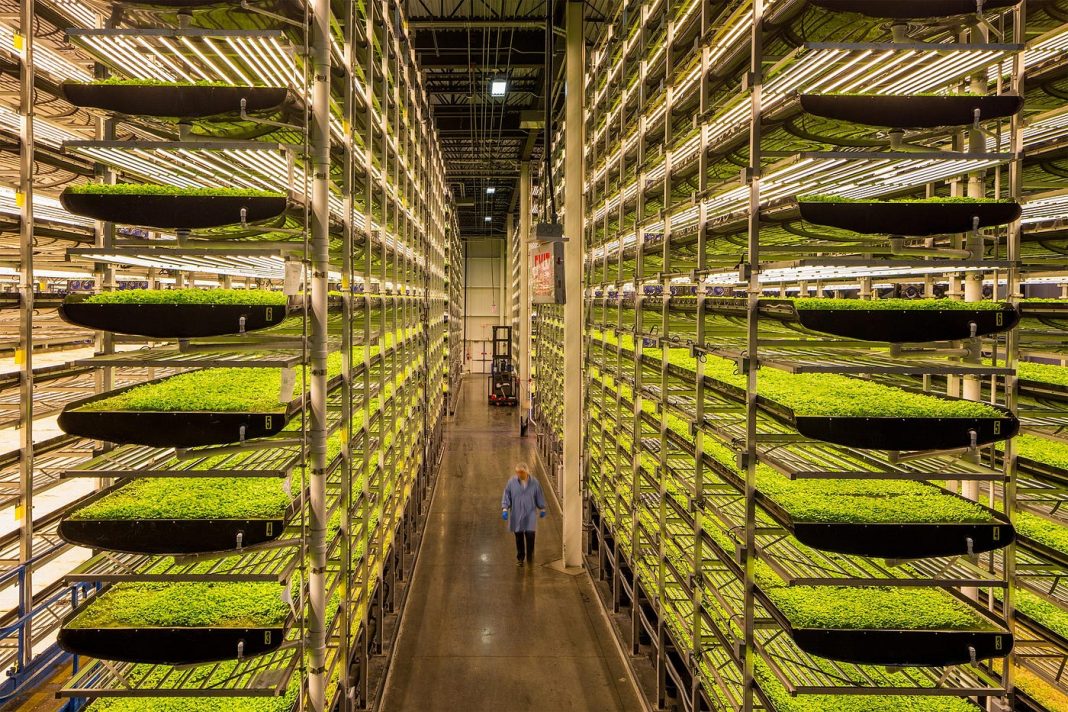Vertical farming, a method of growing crops in vertically stacked layers within controlled environments, has the potential to contribute to future food security significantly. This agricultural approach harnesses innovations in technology to address the increasing challenges of traditional farming and a growing global population.
Key Advantages of Vertical Farming
1. Efficient Use of Space and Resources Vertical farming maximizes agricultural output per square meter, making it particularly effective in urban areas where space is limited. By stacking crops vertically, these farms utilize significantly less land than traditional farming, which could be crucial as urbanization continues to reduce arable land.
2. Reduction in Water and Chemical Use This farming technique is notable for its minimal use of water, with some systems using up to 95% less water than traditional methods. Additionally, the controlled environment reduces the need for pesticides and herbicides, contributing to safer, more sustainable produce.
3. Localized Production By situating farms closer to urban centers, vertical farming minimizes the need for long-distance transportation, reducing carbon emissions and improving the freshness of produce. This proximity to consumers also enables just-in-time crop production, aligning harvests more closely with consumer demand and reducing food waste.
Challenges and Considerations
Despite its benefits, vertical farming faces several challenges. The initial setup and energy costs can be high, and the technology relies heavily on continuous electricity supply, which may pose sustainability concerns. Additionally, while vertical farms can grow leafy greens and herbs efficiently, they are less suited for larger or root vegetables, and scaling up to staple crops like wheat and rice remains economically and technically challenging.
Innovation and Expansion The industry is witnessing significant innovation and investment, suggesting a strong future trajectory. Companies like Plenty Unlimited and Freight Farms are enhancing their technological capabilities and expanding their operations globally. This growth is supported by substantial investments, such as the Series C funding received by Intelligent Growth Solutions to support its global expansion.
The Broader Impact on Food Security
Vertical farming alone will not solve global food security challenges but can play a crucial role as part of a broader strategy. It is particularly effective in supplementing food supplies in urban areas, improving the resilience of food systems against climate change, and providing sustainable production alternatives.
Conclusion
As the global population continues to grow and urbanize, and as traditional agriculture faces increasing challenges from climate change, vertical farming offers a promising supplement to conventional farming practices. By leveraging technological advances, it presents a sustainable, efficient, and locally-focused farming method that could significantly contribute to future food security.

